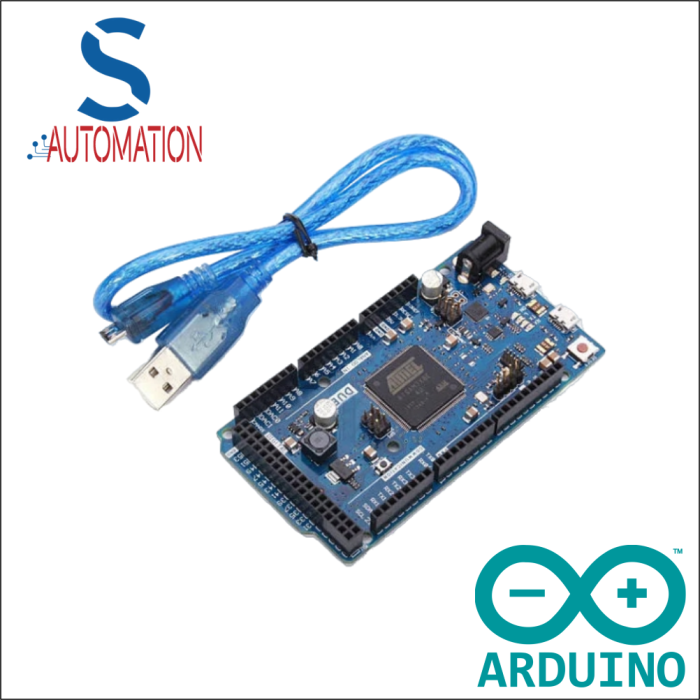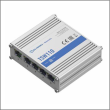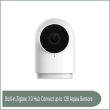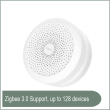Back to Top
Arduino DUE 2012 R3, ARM 32-bit master, development board
Arduino DUE 2012 R3, ARM 32-bit master, development board.
- The Arduino Due is a microcontroller board based on the Atmel SAM3X8E ARM Cortex-M3 CPU.
- It is the first Arduino board based on a 32-bit ARM core microcontroller.
- It has 54 digital input/output pins (of which 12 can be used as PWM outputs), 12 analog inputs, 4 UARTs (hardware serial ports), an 84 MHz clock, a USB OTG capable connection, 2 DAC (digital to analog), 2 TWI, a power jack, an SPI header, a JTAG header, a reset button and an erase button.
- Warning: Unlike other Arduino boards, the Arduino Due board runs at 3. 3V.
- The maximum voltage that the I/O pins can tolerate is 3. 3V.
- Giving an I/O pin a higher voltage—such as 5V—could harm the board.
- Everything required to support the microcontroller is already on the board; all you need to do is power it with a battery or an AC-to-DC adapter or connect it to a computer via a micro-USB cable to get going.
- All Arduino shields that operate at 3. 3V and adhere to the 1. 0 Arduino pinout are compatible with the Due.
- The 1. 0 pinout is used by the Due:- TWI: Pins SDA and SCL adjacent to the AREF pin. - The IOREF pin, which enables a shield to be added and configured appropriately to adjust to the voltage supplied by the board.
- This allows shield compatibility with AVR-based boards that run at 5V and 3. 3V boards like the Due.
Specifications:
- I/O pins: 54 (PWM 12, analogue inputs 12, analogue Ausagnge (DAC) 2, UARTs 4
- SRAM: 96 kB
- Clock speed: 84 MHz
- Connections: SPI, JTAG, Micro-USB, Micro-USB Host
- LEDs: RXD, TXD, Power, user-LED
- Recommended Input voltage 7 - 12 V
- Maximum input voltage: 20 V
- Maximum current of all I/O pins: 130 mA
| SKU | ARD-0064-M01 |
|---|
Write Your Own Review









